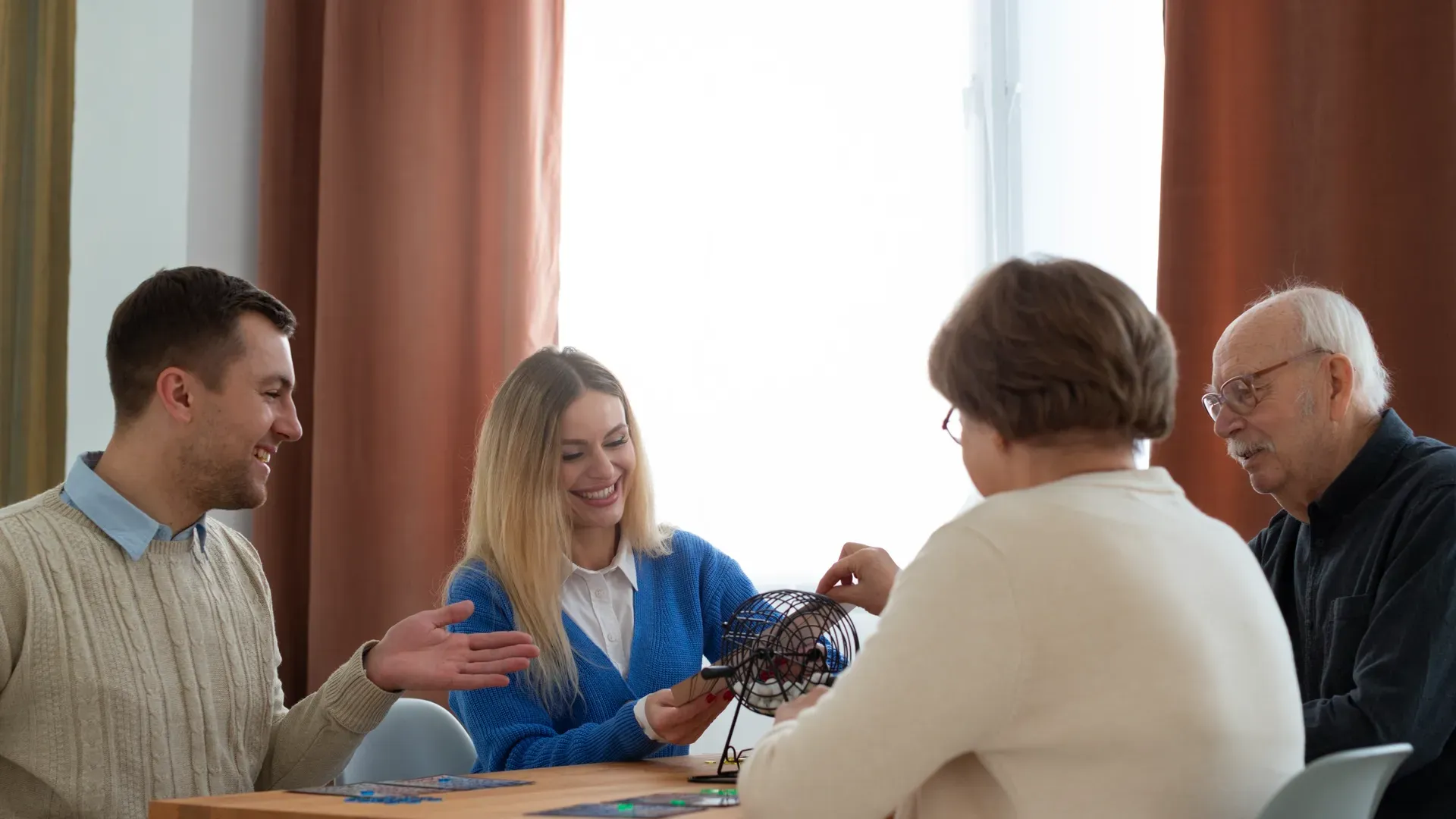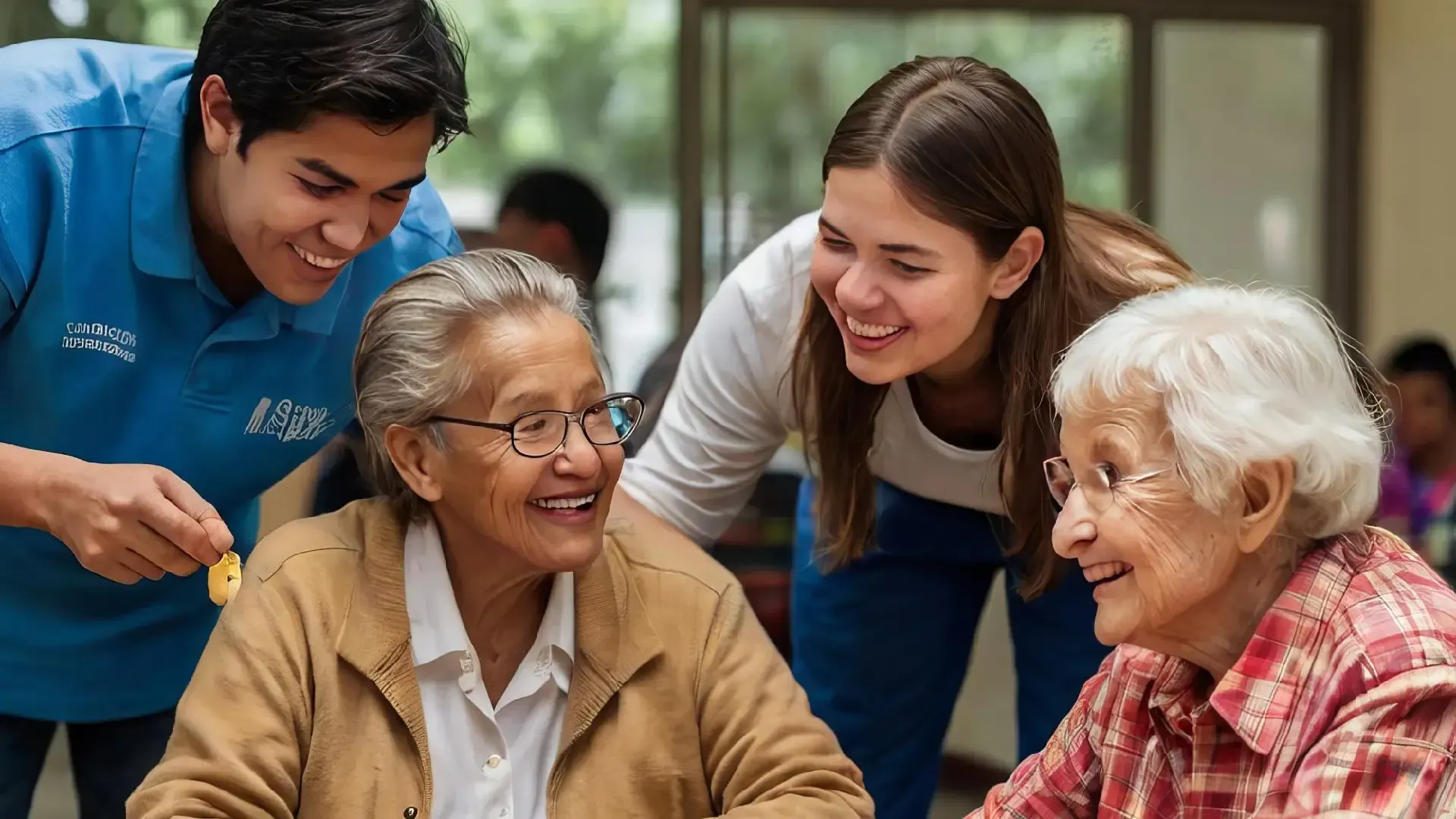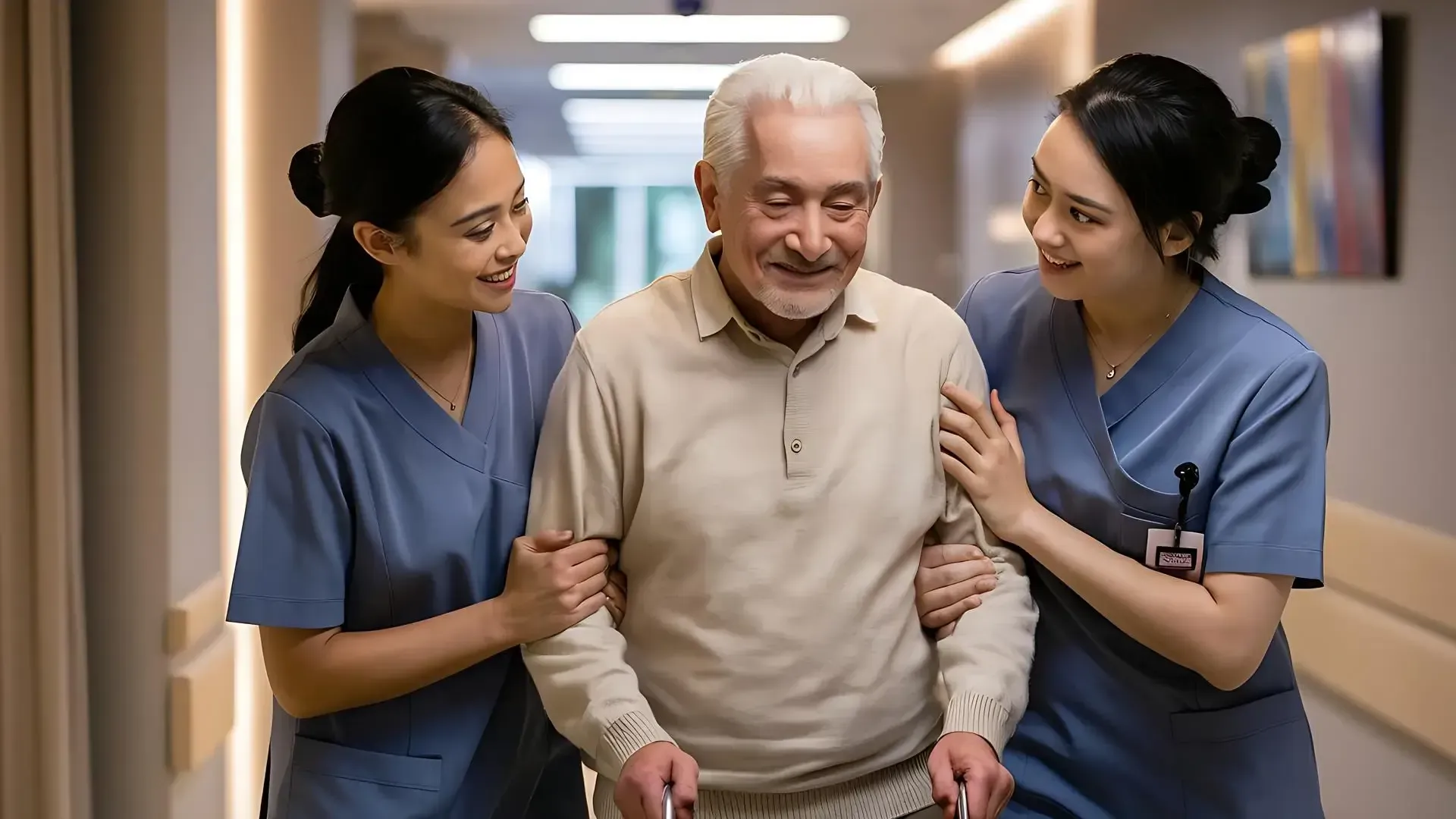Promoting Independence and Dignity in Aged Care: Strategies for Caregivers
As the Dignity in Care programme, initiated in Australia in 2011, advocates, ensuring dignity and respect in health services is paramount, especially within aged care. Highlighting the significance of personal autonomy, the concept of 'dignity' is reinforced when elderly individuals are empowered to feel in control, valued, and capable of making their own decisions. Recognising the “small things” in care—such as the tone of communication and manner of assistance—is crucial to preserving patient dignity and thereby maintaining their self-esteem. Key to this preservation is the promotion of independence, allowing aged individuals the ability to perform tasks that foster their own care and the care of their environment.
Entrusted with the delicate balance of safety and autonomy, caregivers play a vital role in upholding patient dignity through well-tailored strategies that address physical, emotional, and social needs. Assistive technologies, adaptive aids, and dementia-friendly environments are instrumental in fostering physical activity and independence in daily activities. Beyond these practical measures, respecting personal choices in areas such as clothing and social activities, and handling sensitive matters like hygiene with utmost discretion, embodies the respect for privacy and identity essential to personal dignity. Engaging these diverse strategies effectively not only upholds the dignity of the ageing populace but also encourages a culture of respect and independence within the caregiving community.
Assessing Individual Needs and Preferences
Assessing the individual needs and preferences of each person in aged care is pivotal to providing personalised care that aligns with dignity and respect. Such assessments act as the cornerstone for person-centred care, enabling elderly clients to have a say in their health and lifestyle choices. This is more than a procedure; it's a recognition of each client's unique circumstances and a commitment to fostering their autonomy.
For caregivers and healthcare providers in Australia, adapting to the changing needs of aged individuals involves a nuanced understanding of the available support services. These include Home and Community Care (HACC), Home Care Packages, and residential aged care, each catering to different levels of care requirements. Commencing the care journey requires reaching out to local Aged Care Assessment Services (ACAS) or directly contacting My Aged Care.
The assessment process entails two main types:
Home Support Assessment with a Regional Assessment Service (RAS):
Suitable for those requiring basic support to maintain independence at home.
Evaluates the need for low-level assistance, matching services to help seniors stay in their own homes.
Comprehensive Assessment with an Aged Care Assessment Team (ACAT):
Necessitated for individuals requiring more substantial care.
Facilitates entry into the Commonwealth Home Support Programme and other intensive care services according to individual need.
Post-assessment, organisations create care plans in collaboration with the individual requiring support. These care plans are detailed documents that stipulate the necessary services and address the preferences of the individual, reflecting a comprehensive strategy for upholding patient dignity.
Moreover, ongoing monitoring, reviewing of outcomes, and adjusting of practices based on these reviews are integral to ensure the care remains appropriate and person-centric. It is incumbent upon organisations to demonstrate compliance with related standards and regulations, such as those stipulated by the Privacy Act 1988 (Cth) and the Aged Care Act 1997 (Cth), especially in the handling of personal information through My Aged Care portals. Regular reviews of care plans, at least annually or when conditions change, help ascertain the continued relevance and efficacy of the support provided, thereby maintaining respect for the individual's dignity and independence.
Encouraging Decision-Making and Independence
Encouraging independence in aged care is crucial in supporting residents' mental well-being and enhancing their sense of purpose. For many, a strong sense of independence stems from the ability to carry out the activities of everyday living that they once managed in their own homes. From socialising to managing personal affairs like making phone calls or maintaining a living space, these acts of self-sufficiency are vital. By involving residents in decision-making processes and giving them an active role in planning activities, their autonomy is respected and promoted. Caregivers are encouraged to practice good communication, ensuring that every individual is heard and understood, affirming their dignity and respect.
Strategies to Encourage Independence:
Empowerment in decision-making: Give residents a participatory role in selecting activities or making choices within their care plan. This could range from deciding on leisure pursuits to choosing their meals, fostering a sense of control over their daily lives.
Maintain roles and skills: Provide opportunities for the elderly to apply their skills and past experiences to contribute to the community within the care setting. This can help maintain their existing abilities and offer a sense of accomplishment and engagement.
Promote physical activity: A variety of physical exercises should be available to strengthen the body and enable residents to retain as much independence as possible in their movements. Such activities not only offer physical benefits but also provide mental stimulation and can be an enjoyable social occasion.
Technology for connectivity: Introduce technology that allows engagement and interaction, particularly for those confined to their rooms. This helps maintain social connections and supports the formation of independent relationships with both staff and fellow residents.
Developing personalised goals is a nuanced process that must take into account the individual's mental health, well-being, and the personal aims they wish to achieve despite the challenges brought about by their conditions or experiences. Goals should always be reflective of what is in the best interests and wishes of the individual. These ambitions can be nurtured through a respectful partnership between residents and staff, where personal relationships bolster a resident's confidence in asserting their independence while ensuring that dignity and respect remain at the forefront of their care.
To ensure a culture of patient dignity within a facility, caregivers must refrain from making assumptions about a resident’s capabilities. By presenting relevant information and involving individuals in the decision-making process for major life choices, residents can continue to exercise their autonomy. This approach ensures that older adults do not just receive care, but are active partners in the shaping of their care, thus upholding their patient dignity. Encouraging healthy lifestyle choices, nurturing social interactions, and endorsing the use of adaptive technologies are fundamental in realising a life of dignity and respect for the elderly.
Utilising Adaptive Equipment and Environmental Adjustments
Adaptive equipment and assistive technologies are instrumental in upholding dignity and respect in aged care by supporting the performance of activities of daily living (ADLs). Age-related conditions, disabilities, or illnesses can impede the ability to perform ADLs independently, but with the right tools, individuals can regain and maintain significant levels of independence. Examples of adaptive equipment that enhance daily functioning include joint replacements that potentially increase mobility and decrease discomfort. Moreover, these devices, tailored to individual needs, enable elderly individuals to participate more actively in their environment, curbing dependencies and reinforcing patient dignity.
Assistive technologies facilitate independence across various facets of daily life and include:
Mobility Aids: Walkers, wheelchairs, mobility scooters.
Communication Aids: Amplified phones, picture boards.
Vision Aids: Magnifying glasses, large-buttoned remote controls.
Cognitive Supports: Digital calendars, apps for reminders.
In-home devices such as smart lighting, reminder alarms, and automated pill dispensers, contribute to safety and ease, empowering elderly individuals to continue living comfortably in their own homes. Wearable tech, like fall detectors, play a critical role in providing real-time safety updates, offering peace of mind to both patients and caregivers.
The Australian Government acknowledges the benefits of assistive technologies and is working on the Assistive Technologies and Home Modifications scheme, aiming to extend support to older adults. This initiative reflects an awareness of the importance of maintaining autonomy at home. In addition, interventions like CAPABLE focus on modifying the home environment to prevent accidents and enhance safety, therefore promoting aged care focused on dignity and independence. However, it's vital that alongside the introduction of new technologies, efforts are made to raise awareness among stakeholders in the aged care industry. Knowledge transfer about the importance and usage of these technologies, and assistance with procurement and installation, are key to broadening their adoption.
Recent advancements in safety and security technologies designed for aged care settings include:
Safety Sensors: Detect extreme temperatures, gas leaks, and falls.
Monitoring Devices: Provide alerts for absences from bed or irregular night-time activity using passive infra-red systems.
Success stories in domestic applications include automated stove-top monitors and shut-offs to prevent fire hazards, automatic taps to avoid flooding, time-orientation support systems, and bed occupancy sensors, all of which promote a safer living space conducive to independence and well-being. These innovations provide a framework for care that places the individual's dignity and self-determination at the centre of the caregiving process.
Maintaining Social Connections and Emotional Support
Social connections and emotional support form the bedrock of emotional wellbeing for older adults in aged care. Recognising the potent impact that social interaction has on seniors, there is a concerted effort to reduce the risk of chronic diseases and bolster overall well-being through community and connection. Studies illustrate that seniors with strong social ties exhibit slower rates of cognitive decline and are shielded against the adverse effects of loneliness, which can precipitate depression and cardiovascular problems.
Aged care facilities throughout Australia have taken definitive steps to combat social isolation. These measures include:
Group Activities: Facilities are hosting a variety of events that bring residents together, such as group exercise classes, book clubs, and craft workshops, catering to diverse interests.
Recreational Programs: Consideration for personal hobbies is evident in recreational planning, with programs designed to incorporate activities like gardening, music, and cooking.
Intergenerational Initiatives: Encouraging interactions between different generations, these programs facilitate relationships that bridge the age gap, bringing fresh perspectives and joy to residents.
Community Outings: Outings are regularly organised to keep residents connected to the larger community, ranging from museum visits to picnics in local parks.
Moreover, the creation of inviting communal spaces within care facilities encourages residents to step out of their private rooms and interact. Technology, including social media and video calls, is deftly leveraged to ensure that residents remain in close contact with family and friends who might not be able to visit in person.
Addressing mental and emotional health is equally crucial to maintaining patient dignity in the journey of ageing. This is addressed through:
Exercise Programs: Tailored activities aimed at enhancing both physical and mental health, reinforcing a sense of agency and accomplishment.
Social Support Services: Designing support groups and buddy systems to forge and sustain meaningful connections within the aged care community.
Art Therapy: Allowing creative expression which can be therapeutic and a source of relaxation and fulfillment for many.
Preventing psychological ailments like anxiety and depression is a multipronged strategy involving:
Keeping Connections Alive: Regular communication with loved ones and immersion in community life serve as a bulwark against isolation.
Participation in Fulfilling Activities: Fostering a schedule that includes engaging and joy-inducing activities like gardening, painting, or other hobbies.
Healthy Lifestyle Practices: A combination of regular exercise and a well-rounded diet to maintain physical strength and mental clarity.
Personalised Care and Treatment: Tailoring treatments including lifestyle modifications, psychological therapies or appropriate medications, overseen by skilled healthcare professionals like GPs and mental health specialists.
Finally, online resources and e-therapies have emerged as vital tools for older adults in rural or remote areas, where traditional services may be sparse. These technological solutions uphold dignity and respect by democratising access to mental health support, thereby maintaining consistent care standards across varied geographic landscapes.
Conclusion
In conclusion, our exploration of strategies to promote independence and dignity in aged care has underscored the intrinsic value of personal autonomy and respect for the elderly. Summarising our key points, we have delved into the importance of assessing individual needs, the empowerment of decision-making, the utilisation of adaptive equipment, and the nurturing of social connections to enhance the emotional support for aged individuals. By adhering to these strategies, caregivers and aged care facilities can significantly contribute to the well-being and dignity of the individuals in their care, reflecting a profound respect for their preferences and life experiences.
The overarching message of the article points to the broader implications of fostering an environment that prizes dignity and autonomy, serving as a potent reminder of the essential human right to feel valued at every stage of life. As we conclude, it is of utmost importance to reiterate our commitment to continuous improvement in aged care and encourage further research and innovation in this field. It is the responsibility of everyone involved, from policymakers to caregivers, to ensure that the principles of dignity and respect are not mere aspirations but are embedded in the ethos of care provided to our ageing population.










